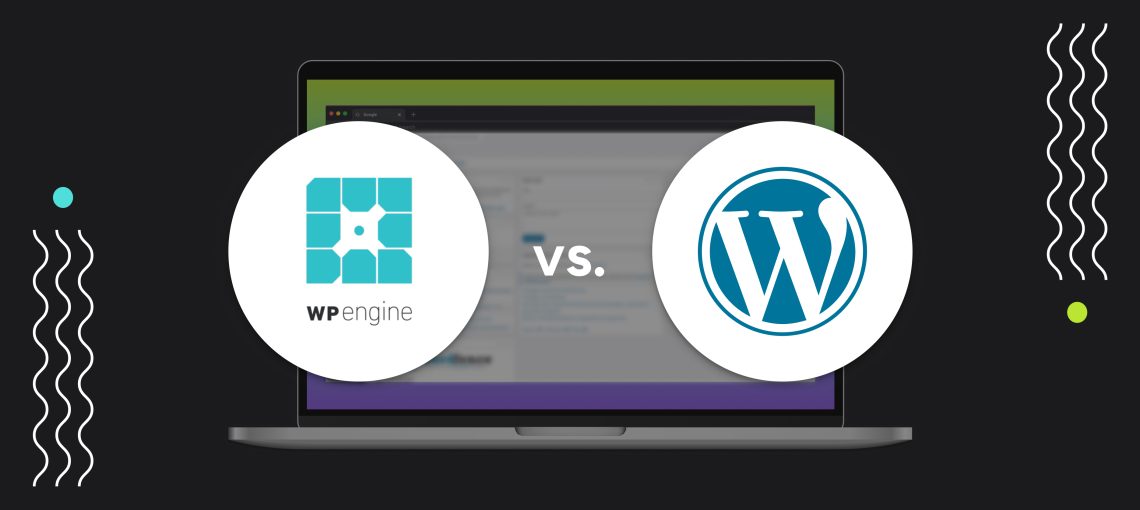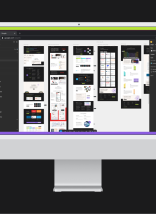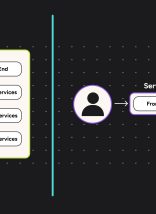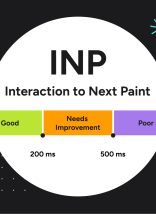When it comes to website hosting and management, two names dominate the conversation—WordPress and WP Engine. If you’re already a WordPress aficionado, you know it’s the king of flexibility, giving you the freedom to customize just about everything. But what happens when WP Engine enters the picture? Designed to supercharge WordPress, it promises a high-performance, headache-free experience.
On the surface, WP Engine feels like a dream come true for website owners. It’s packed with features, boasts stellar performance, and provides a level of security that could make your site feel invincible. Yet, as Atlantic BT’s experience has shown, beneath that shiny exterior are some important considerations that aren’t always apparent at first glance.
WP Engine’s Shine: The Allure of Premium Hosting
Let’s start with what WP Engine does right. It offers managed hosting tailored specifically for WordPress, taking care of all the technical heavy lifting—think automatic backups, built-in caching, and other performance enhancements that keep your site running smoothly. Here’s why it stands out:
- Speed and Performance: WP Engine uses proprietary caching technology, giving your site a speed boost that makes it feel turbocharged. For businesses where every millisecond counts, this can be a game-changer.
- Security: The platform’s focus on security is hard to match, with features like firewall protection, DDoS prevention, and malware scanning. Your website can rest easy knowing it’s well-guarded.
- Automatic Updates: Forget about scrambling to apply updates—WP Engine handles them, keeping your site current with the latest WordPress versions and security patches.
But while all this sounds fantastic, there’s more to the story.
A Deeper Dive: Atlantic BT’s Expert Insights
Atlantic BT has worked closely with many clients hosting on WP Engine, which gives us a front-row seat to its strengths and shortcomings. Here are some deeper considerations that might not be on your radar:
- Lack of Support: Effective support plays a key role. While WP Engine does offer 24/7 support, some issues can be hard to resolve due to the platform’s intricacies. When your site’s performance is directly linked to your business outcomes, the quality of support matters just as much as the platform’s capabilities.
- Black Box Customization: One of the challenges with WP Engine is the limited transparency around certain configurations. For instance, the platform imposes a 1 MB size limit on rows in the
wp_optionstable. This table stores essential configurations for the site and its plugins, and if a row exceeds the limit, it can be deleted without notice during an overnight cron job. We experienced this firsthand with a client using the WPML localization plugin. After some routine editing of international pages, the configuration row for WPML grew past the limit, resulting in the row being deleted overnight and the site’s layout breaking by morning. This kind of “black box” customization, where certain limitations aren’t clearly communicated or easily configurable, can be frustrating when troubleshooting issues. - Limited Upgrade Testing Environments: Another challenge emerged when WP Engine upgraded all sites to MySQL 8 from MySQL 5.7. While we had received ample notice, WP Engine didn’t provide a way to test the new version on their development servers. Instead, we had to rely on our personal setups, which didn’t fully replicate the production environment. If you’ve ever worked on web development, you know that matching the development and production servers as closely as possible is essential to catching niche configuration issues. In this case, the lack of a true testing environment sent us on a time-consuming detour, as we initially assumed the issue was related to the database upgrade, rather than the
wp_optionstable limitation.
These are just few examples of challenges we’ve encountered while working with WP Engine. With our own hosting solutions at AWS, we can control the entire platform and customize it as needed to suit our clients’ unique requirements.
The Atlantic BT Way: A Different Approach to Client Support
At Atlantic BT, we take a more hands-on, personalized approach to customer support. We don’t just host your site; we actively collaborate with you to ensure its success. Whether it’s new development or ongoing maintenance, we know our clients and understand their business priorities. This close partnership means that when problems arise, you can count on clear communication and timely solutions. Your project is our priority, and we do what’s necessary to keep it running smoothly—because we’re not just another hosting provider; we’re your partner in digital success.
The Middle Ground: Is WP Engine the Right Fit for You?
If Your Site Isn’t Mission-Critical: WP Engine works well if your primary focus is solid performance for non-critical sites. It’s a good choice for businesses that can tolerate occasional quirks or limitations and don’t require absolute control over every technical detail. It’s managed hosting, after all, designed to simplify your workload, not give you the keys to the entire kingdom.
If You Need Quality and/or Control: On the other hand, if your site’s success hinges on uptime, security, and robust support or if you thrive on fine-tuning every aspect of your WordPress setup, you might find traditional hosting more fitting. Providers that let you manage every plugin, server configuration, and update might be better aligned with your needs, especially if your site’s performance is directly tied to your bottom line.
Conclusion
WP Engine and WordPress each offer unique benefits but cater to different needs. If your website’s performance and security are essential to your business’s success, WP Engine’s managed hosting could be worth the investment. For others, the hands-on control and flexibility of self-hosted WordPress might be a better fit.
Understanding your site’s requirements and how business-critical your web presence is will help guide the decision—whether that means choosing WP Engine for its managed convenience or opting for a hosting solution where you have the freedom and support to tailor everything to your needs.










